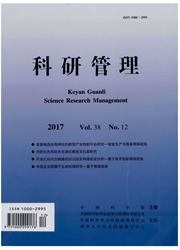

 中文摘要:
中文摘要:
以博弈论为理论基础,构建了研发补贴与污染排放税收下的企业研发模型,研究了减排目标下企业的最优研发水平、最优研发补贴和最优污染排放税收。研究结果显示:适当的污染排放税收有利于企业研发投入和产量的提高;研发补贴不会对企业的研发投入产生“排挤效应”,可以较大程度上提高企业研发投入的积极性;企业对环境的污染需控制在社会可接受收的范围内,否则,企业的生产活动会被政府停止。
 英文摘要:
英文摘要:
On the basis of game theory, an enterprise R&D model under conditions of R&D subsidy and pollution emission tax has been constructed. With the goal of emission reduction, optimal R&D level, optimal R&D subsidy, and optimal pollution emission tax for the enterprises are studied. The research results show that appropriate emission tax is of benefit to the improvement of the R&D investment and output of enterprises ; the R&D subsidy is able to eliminate the effect of push aside and improve the R&D investment greatly. The environment pollution must be controlled in the scope of social acceptable; otherwise, the enterprise production activities will be ultimately stopped by the government.
 同期刊论文项目
同期刊论文项目
 同项目期刊论文
同项目期刊论文
 期刊信息
期刊信息
